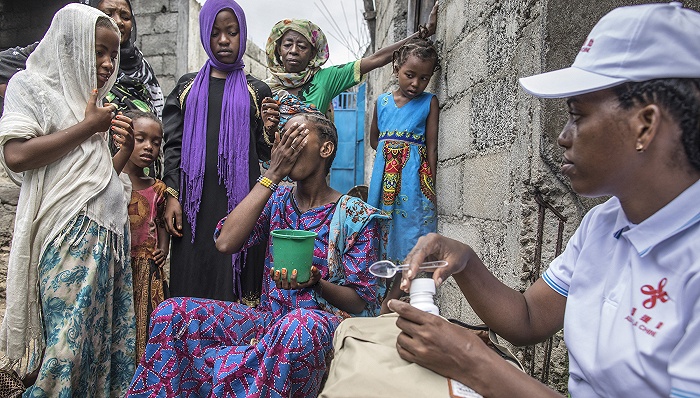Back in 2007, China led an ambitious program to eradicate malaria in the Comoros Islands, a small island nation off the coast of Mozambique in southeastern Africa. And, for the most part, it was successful, but the process wasn’t easy and, not surprisingly, the Chinese medical teams leading the effort encountered a lot of challenges. Experts today are now studying the Chinese program there to see if there are lessons that can be applied to the broader anti-malaria effort on the African mainland.
Malaria continues to be one of the leading causes of death in Africa, where the mosquito-borne disease claims at least 400,000 lives a year, mostly children under the age of five. Now, amid the COVID-19 outbreak, public health stakeholders are becoming increasingly concerned that the fight against malaria will suffer given how much of the attention and funding has been shifted to combat the ongoing pandemic.
Esther Ajari, founder and director of The TriHealthon, a Nigeria-based youth-led nonprofit that conducts research and promotes health equity in Africa, detailed some of those takeaways from the Chinese malaria effort in the Comoros Islands in a recent article that was published on the China-Africa Project. She joins Eric and Cobus from her home in Nigeria’s southern Delta state to discuss her findings and what lessons can be applied from the fight against malaria to COVID-19.







